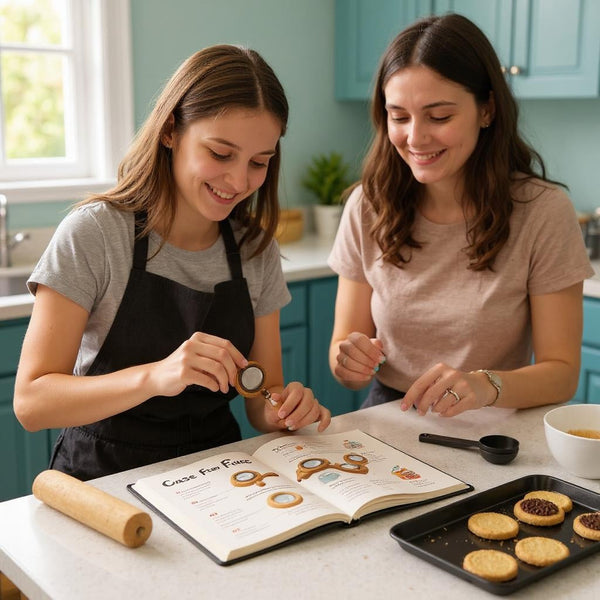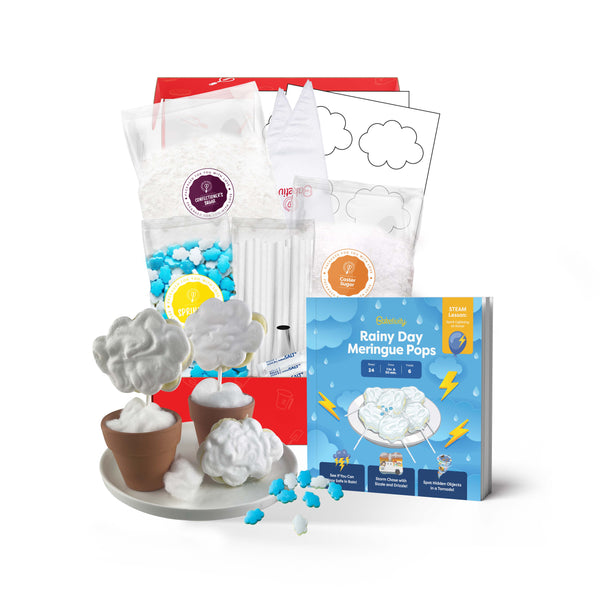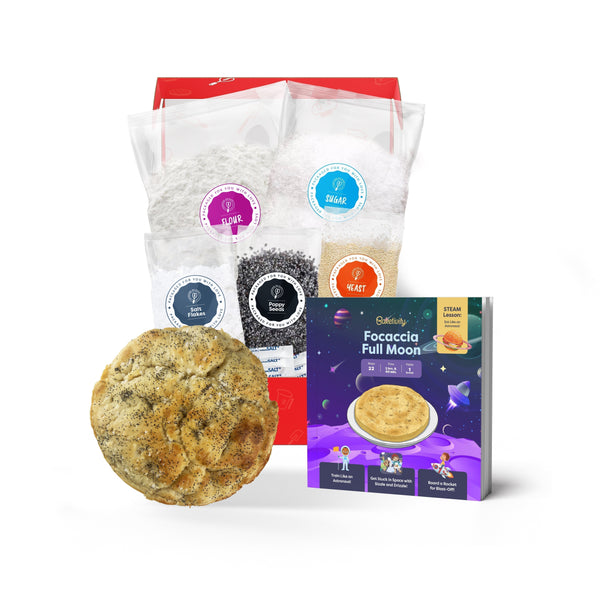Understanding Homeschooling
If you're considering homeschooling as an alternative to public schooling, it's important to have a clear understanding of what homeschooling entails. Homeschooling is the practice of educating children at home, typically by their parents or guardians. It provides a customized education experience tailored to the specific needs and interests of the child.The Basics of Homeschooling
In homeschooling, parents have the flexibility to design and implement a curriculum that aligns with their child's learning style and pace. They have the freedom to choose the subjects and teaching materials that best suit their child's needs. Additionally, homeschooling allows for one-on-one instruction, which can enhance the learning experience for many children. Furthermore, homeschooling provides an opportunity for parents to incorporate real-life experiences into their child's education. Whether it's a trip to a museum, a visit to a local farm, or a nature walk in the park, homeschooling allows for hands-on learning that goes beyond the confines of a traditional classroom.Pros and Cons of Homeschooling
One of the major advantages of homeschooling is the ability to provide personalized attention to each child. This enables parents to focus on their child's strengths and weaknesses, ensuring a tailored educational experience. Homeschooling also allows for flexibility in scheduling, enabling families to create a learning environment that fits their lifestyle. However, homeschooling does come with its challenges. It requires a significant commitment of time and effort from parents, who must take on the role of both educator and caregiver. It can also limit socialization opportunities, as homeschooled children may have fewer opportunities to interact with peers. Despite these challenges, homeschooling has been shown to foster a strong sense of family unity. The close-knit nature of homeschooling allows for deeper parent-child relationships and promotes a supportive and nurturing environment for learning.Common Misconceptions about Homeschooling
There are several common misconceptions about homeschooling that should be addressed. One of the most prevalent is the belief that homeschooled children lack social skills. However, homeschooling allows for ample opportunities for socialization through activities such as homeschool co-ops, sports teams, and community organizations. Another misconception is that homeschooling limits college opportunities. On the contrary, homeschooled students often excel academically and have higher college acceptance rates. Many colleges actively seek out homeschooled students due to their unique learning experiences and diverse perspectives. Moreover, homeschooling provides students with the opportunity to develop essential life skills such as time management, self-discipline, and independent learning. These skills not only prepare them for college but also for future careers where self-motivation and adaptability are highly valued.Delving into Public Schooling
Public schooling is the traditional form of education that most students experience. It involves attending a government-funded school, where students learn in a structured environment with teachers and peers.The Structure of Public Schooling
Public schools operate on a set curriculum determined by educational standards. Students follow a fixed schedule and are taught by certified teachers who specialize in various subjects. Public schooling offers a wide range of extracurricular activities, such as sports teams, clubs, and school events.Advantages and Disadvantages of Public Schooling
One of the major advantages of public schooling is the exposure to a diverse group of peers, fostering socialization and the development of interpersonal skills. Public schools also offer a variety of resources, including libraries, laboratories, and specialized facilities for art and music. Moreover, public schools often provide opportunities for students to engage in community service and civic engagement, helping them develop a sense of responsibility and empathy towards others. These experiences can shape students' character and prepare them for active participation in society. However, public schooling has its drawbacks. With larger class sizes, individualized attention may be limited. The curriculum may not cater to each student's unique learning needs, potentially leaving some students feeling overlooked or unchallenged. Additionally, the lack of flexibility in scheduling may hinder families with specific lifestyle considerations.Debunking Myths about Public Schooling
Contrary to popular belief, public schools can offer excellent educational opportunities. While funding and resources may vary across districts, many public schools provide quality education with dedicated teachers and a supportive learning environment. Another misconception is that public schooling hampers creativity and individuality. However, public schools often offer a wide range of extracurricular activities and opportunities for students to explore their passions and talents. From drama clubs to robotics teams, students can find avenues to express their creativity and develop their unique interests. Furthermore, public schools strive to create inclusive environments where students from diverse backgrounds can thrive. They promote cultural awareness and respect, fostering an atmosphere of acceptance and understanding among students. This emphasis on diversity prepares students for the multicultural world they will encounter beyond the school walls. In conclusion, public schooling provides a structured and diverse educational experience for students. While it has its advantages and disadvantages, debunking common myths reveals the many opportunities and resources available within the public school system. By nurturing social skills, offering extracurricular activities, and promoting creativity and inclusivity, public schools play a crucial role in shaping the minds and characters of future generations.Key Differences between Homeschooling and Public Schooling
When deciding between homeschooling and public schooling, it's essential to consider their key differences. These differences can significantly impact the educational experience and overall development of your child. One of the key aspects to consider when choosing between homeschooling and public schooling is the level of individual attention and customization that can be provided to your child. In homeschooling, parents have the unique opportunity to tailor the curriculum to suit their child's specific interests, learning pace, and strengths. This personalized approach can lead to a more engaging and effective learning experience, as the child receives focused attention and instruction that caters to their individual needs. Furthermore, homeschooling allows for a more flexible learning environment. Children can explore topics in-depth, take field trips to enhance their learning, and have a more hands-on educational experience. This flexibility enables parents to adapt the learning environment to best suit their child's learning style, whether they are visual learners who benefit from multimedia resources or kinesthetic learners who thrive in a more interactive setting.Curriculum Comparison
One fundamental difference is the curriculum. In homeschooling, parents have the flexibility to choose and customize the curriculum based on their child's interests and learning style. Public schools, on the other hand, follow a standardized curriculum set by educational authorities.Socialization Differences
Socialization is another important aspect to consider. While public schools provide daily interactions with peers, homeschooling requires parents to actively seek out socialization opportunities for their children. This can be accomplished through joining homeschool co-ops, community organizations, or participating in extracurricular activities.Flexibility and Personalization
Flexibility is a significant advantage of homeschooling. Parents can adapt the schedule to fit the child's needs and incorporate personalized teaching methods. Public school schedules are more rigid, allowing less room for customization, but offer a structured environment that some children thrive in.Making the Decision: Factors to Consider
When making the final decision between homeschooling and public schooling, it's crucial to consider various factors that are unique to your child and family.Your Child's Learning Style
Understanding your child's learning style can help guide your decision. Some children thrive in a structured classroom environment, while others may require more individualized instruction. Consider how your child learns best and which educational setting is better aligned with their needs.Family Lifestyle and Schedule
Your family's lifestyle and schedule should also factor into the decision-making process. Homeschooling requires a significant time commitment from parents, as they will be responsible for planning and implementing the curriculum. Public schooling may be a better fit for families with busy schedules or those who rely on dual incomes.Financial Considerations
Financial considerations should not be overlooked. Homeschooling may require the purchase of educational materials or enrollment in online courses, while public schooling is typically funded through taxes. Evaluate the financial implications of each option and determine what is financially feasible for your family. Choosing between homeschooling and public schooling is a significant decision that requires careful consideration. It's important to weigh the advantages and disadvantages of each option, and most importantly, consider the unique needs and preferences of your child. By taking into account factors such as learning style, lifestyle, and finances, you can make an informed choice that will provide the best educational experience for your child.Discover the Joy of Learning with Baketivity
As you consider the best educational path for your child, remember that learning extends beyond textbooks and classrooms. Baketivity invites you and your family to blend education with the delightful art of baking. Our baking kits not only provide a practical application of STEAM concepts but also offer a unique opportunity for family bonding and creativity. Embrace the flexibility of homeschooling or enhance public schooling with hands-on experiences that create lasting memories. Join the Baking Club today and start building skills that will serve your child in the kitchen and beyond!




